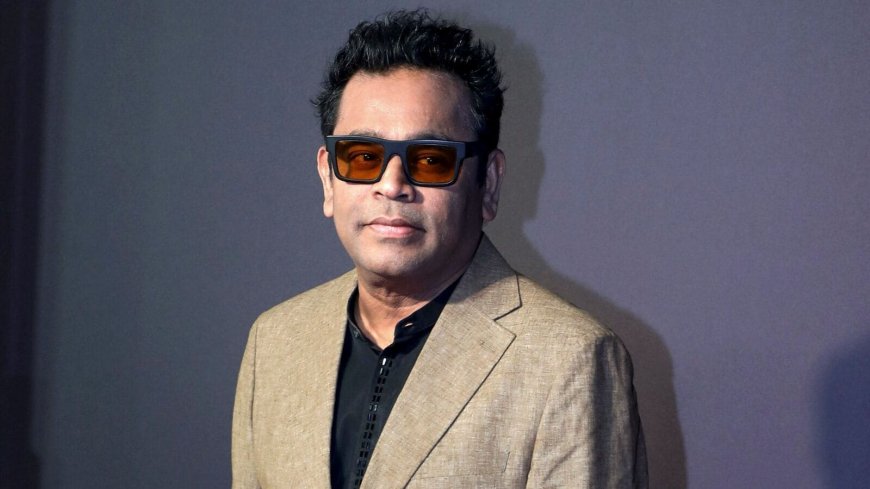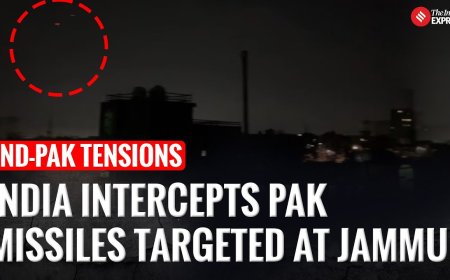A.R. Rahman Legal Controversy Revives Old Industry Clashes: A Persistent Problem With No Clear Solution
The recent A.R. Rahman event controversy sheds light on a recurring conflict in India’s music industry—creative rights versus organizational chaos. Why solutions remain elusive.

A.R. Rahman Case Revives a Frequent Clash — But the Remedy Remains Hard to Find
Introduction: A Legendary Maestro Caught in Familiar Turmoil
When the name A.R. Rahman trends online, it’s usually because of a mesmerizing melody or a global collaboration. But in early 2025, the maestro made headlines for all the wrong reasons. His Chennai concert—intended to be a celebration of music—turned into a debacle marked by crowd mismanagement, overbooking allegations, and subsequent legal complaints. While Rahman himself expressed regret and offered refunds, the fallout reignited a long-simmering debate in India’s entertainment industry: who is truly responsible when a musical event goes wrong?
This isn’t just about one concert or one artist. The A.R. Rahman case has once again brought to the forefront the clash between artistic freedom, commercial ambition, and logistical accountability. It's a cycle we’ve seen before—with varying faces and venues—but the underlying issues remain stubbornly unresolved.
What Happened at the Chennai Concert?
On a humid evening in Chennai, fans gathered in anticipation of witnessing a musical legend live. However, what unfolded was chaos. Many ticket holders were reportedly denied entry due to overcapacity. Families with children were left outside stadium gates. Videos soon emerged showing fans arguing with security personnel, some in tears, others outraged.
Rahman, known for his humility and grace, issued a statement on social media apologizing for the "inconvenience" and promising to look into the matter. The organizing company, ACTC Events, shifted blame to third-party ticketing platforms and logistical miscalculations. But the damage was done—not just to the reputation of the event, but also to the trust that fans place in live experiences.
This Isn’t New — Just the Latest Episode
Rahman’s case isn't an outlier. The Indian music industry has long witnessed similar issues. From botched concerts in Bangalore to canceled gigs in Delhi due to permit issues, the combination of poor event planning and lack of clear accountability has been a recipe for repeat disasters.
Some Notable Precedents:
-
2017: Canadian pop star Justin Bieber’s Mumbai concert faced backlash over logistical lapses, including substandard infrastructure and audience mismanagement.
-
2019: Singer Arijit Singh’s Kolkata concert ended abruptly due to poor coordination between organizers and local authorities.
-
2023: A Punjabi music event in Chandigarh was canceled last-minute due to lack of crowd control arrangements, despite selling out weeks in advance.
The common thread? The artist takes the fall in public discourse, while the systemic loopholes remain largely unaddressed.
Artists vs Organizers: Who Bears the Burden?
In the A.R. Rahman case, one question took center stage: Should artists be held responsible for operational failures at events bearing their name?
The Artist’s Role:
Artists often lend their brand and popularity to promote events. However, the actual logistics—ticketing, security, seating, sound setup—are handled by production and event management companies.
The Organizer’s Role:
Organizers are responsible for ensuring crowd safety, regulatory compliance, and smooth execution. But they often operate under razor-thin margins and with little oversight from industry bodies.
The Legal Blinders:
Currently, India lacks a standardized entertainment contract framework that clearly defines accountability between artists, managers, vendors, and third-party service providers.
As a result, when events implode, responsibility becomes diffuse. Public ire is typically directed at the face of the brand—usually the artist—because that’s who fans associate with the event, regardless of the underlying contractual structure.
The Business of Events: High Stakes, Low Regulation
India’s live events industry is booming, expected to reach ₹10,000 crore by 2026. From music festivals like Sunburn and NH7 Weekender to regional concerts and corporate gigs, the appetite for live experiences is surging.
But behind this boom lies a fragile infrastructure. Here’s why:
1. Overdependence on Third Parties
Event execution often relies on subcontractors—ticketing platforms, logistics firms, vendors—none of whom are directly accountable to the end customer.
2. Opaque Revenue Sharing
Artists are paid through fixed or revenue-share models, but the final financial outcome is dependent on multiple uncertain variables like sponsorships and last-minute ticket sales.
3. Limited Legal Recourse
Customers who suffer at events have few formal avenues to seek justice. Lawsuits are rare, and consumer forums are ill-equipped to handle such cases.
4. Weak Regulation
The absence of a national-level event regulation authority means guidelines vary by state, and enforcement is patchy at best.
What the A.R. Rahman Case Reveals About the System
Rahman’s situation is a textbook example of the disconnect between brand power and operational control. While his intention was to create an unforgettable musical journey, the execution fell short due to factors outside his direct control. Still, the controversy quickly turned into a media trial, highlighting how the system disproportionately penalizes the artist.
This incident also reinforces how vulnerable fans are in a market that lacks consumer protections for event attendees. If a ticket holder is denied entry, who refunds them? Who ensures compensation for physical or emotional distress? Currently, there are no robust answers.
Toward a Solution: Can the Music Industry Clean Itself Up?
There’s no magic fix, but several proactive steps can pave the way for better outcomes:
1. Artist-Organizer Contracts Must Be Transparent
Contracts should include clauses that clearly delineate responsibilities and indemnities for both parties. If something goes wrong, legal clarity will prevent reputational damage.
2. Standardization of Event Licensing and Regulation
India needs a regulatory body akin to Ofcom (UK) or FCC (US) for entertainment and events. Licensing, security compliance, and crowd control norms must be unified.
3. Third-Party Audits
Large-scale concerts should be subjected to logistical audits by independent agencies to verify crowd safety, structural integrity, and fire norms.
4. Public Ratings and Complaint Redressal
An online platform for post-event customer reviews and verified complaint registration could promote accountability.
5. Insurance Mandates
Event insurance—covering everything from crowd mismanagement to weather-related cancellations—should be made compulsory.
The Cultural Dimension: Respecting the Artist’s Intention
India’s music lovers revere icons like A.R. Rahman. But even legends need systemic support. Holding them personally responsible for logistics they don’t control is not only unfair—it risks deterring artists from connecting with audiences in live formats.
Fan Expectations vs Reality
The emotional bond between an artist and their audience creates high expectations. But we must evolve our understanding to separate artistic intention from event execution.
Rahman’s offer of refunds showed integrity. But it shouldn’t have come to that. He should have been insulated by a framework that ensured delivery on promises made to the audience under his name.
A Wake-Up Call, Not Just Another Headline
The A.R. Rahman concert controversy is more than a misstep in event planning. It’s a clarion call for India’s live music and entertainment ecosystem to mature. If we want our artists to perform without fear of backlash, we must ensure that the infrastructure supporting them is reliable, transparent, and legally sound.
Until then, we’re doomed to repeat the same headlines: Another artist in the spotlight. Another concert in chaos. Another apology issued. And still, no real change in sight.
Rahman may have moved on to his next melody, but the industry must pause and listen—not just to the music, but to the message this episode sends.
What's Your Reaction?
 Like
0
Like
0
 Dislike
0
Dislike
0
 Love
0
Love
0
 Funny
0
Funny
0
 Angry
0
Angry
0
 Sad
0
Sad
0
 Wow
0
Wow
0












































































